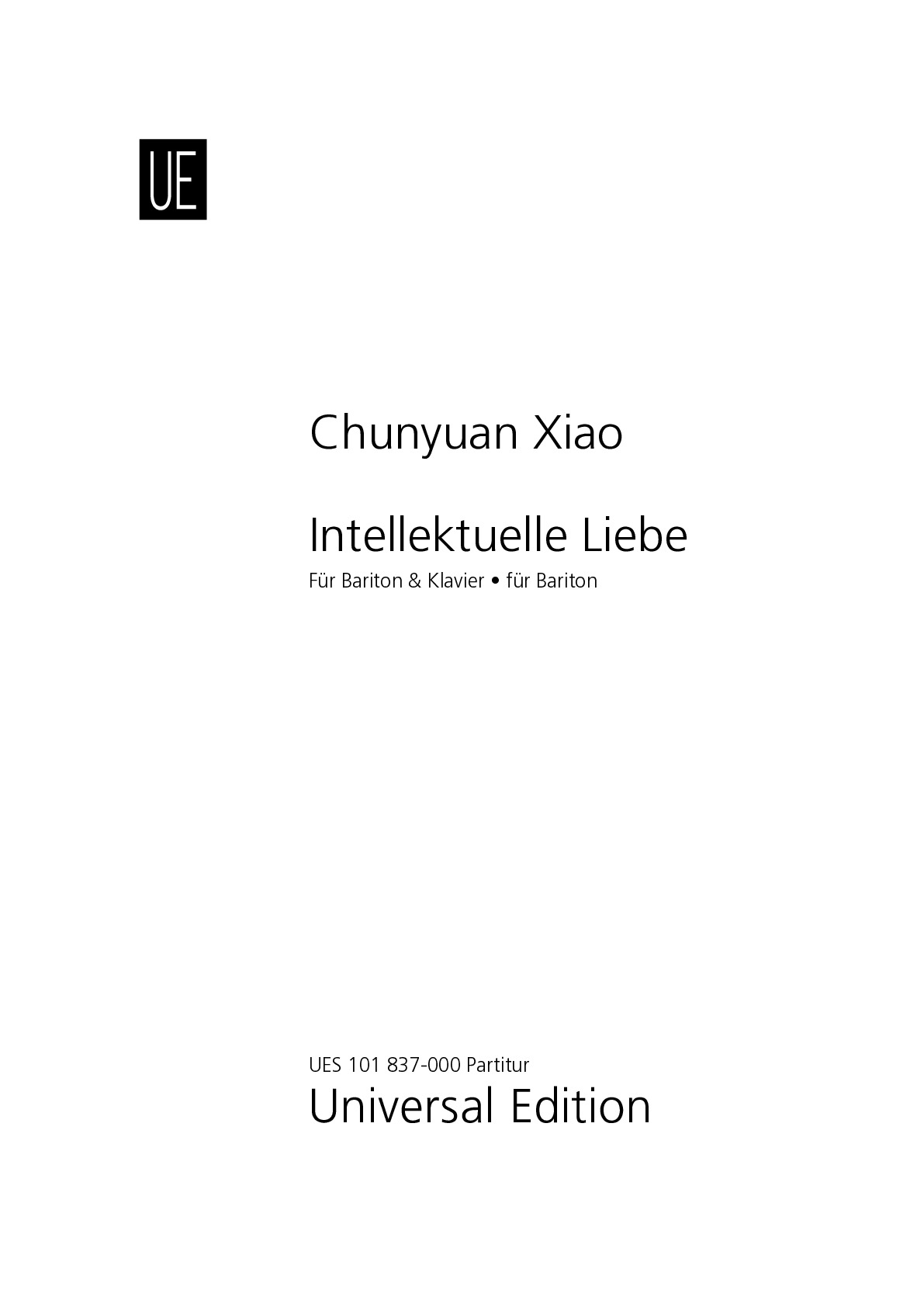.png)
Digital edition
immediately available as PDF
€11.95
Payments:
Shipping:
Chunyuan Xiao
Intellektuelle Liebe, Für Bariton & Klavier
UES101837-000
Type: Dirigierpartitur
Format: 210 x 297 mm
Pages: 8
Digital edition
immediately available as PDF
€11.95
Payments:
Shipping:
Description
'Eternity is now' and 'Art for arts sake' are two main ideas in this poem. The decision to write this poem is due to 17th century religious philosopher Baruch Spinoza and his doctrine amor Dei intellectualis. The belief is that the ultimate aim for humankind is the intellectual love of God or the amor Dei intellectualis, which is equivalent to knowledge of God, that this knowledge of the natural causal order is the only true 'religion' and a route to freedom. It is through this untiring bond of devotion that enables man to attain his greatest achievements by creating an intellectual bond of affection.
The poem is in two stanzas. First, an octet concerns eternity and mythos in a joyful presencing. Castaly was the spring sacred to the muses on Mount Parnassus; sylvan is a mythological woods. Euphony begins now in a magical forest and sets sail upon a large merchant ship ,argosy guided by the nine sister goddesses in Greek mythology who presided, empery, over their song and poetry.The second stanza, a sestet in which Wilde calls forth the names of Sordello, an early thirteenth-century troubadour and the subject of Robert Browning's famous study of a poetic soul in his 1840 poem, young Endymion about the perpetual youth of Greek myth and the subject John Keats poem by the same. There is the lordly Tamburlaine from Tamburlaine the Great (1590)," by Christopher Marlowe and the seven-fold vision of the Florentine are Dante Alighieri's picture of the seven levels of The Inferno. Wilde finishes his poem with the soft echoes of John Milton's ageless losing first and then regaining of Paradise.
More information
Type: Dirigierpartitur
Format: 210 x 297 mm
Pages: 8

